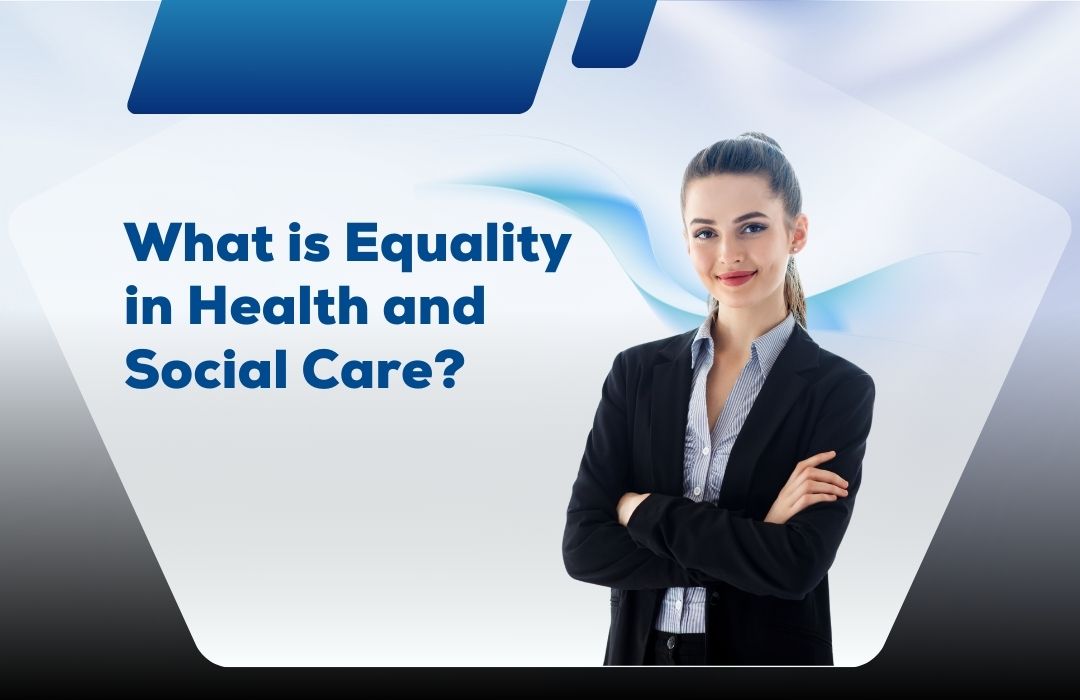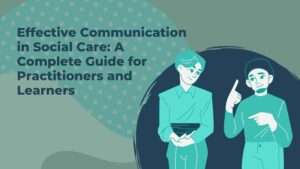1. Introduction
Equality, diversity, and inclusion (EDI) are crucial in the healthcare and social care industries to guarantee that everyone is treated fairly and with dignity. Better care outcomes result from treating patients and service users fairly and with respect, given their varied origins and requirements.
The definition of equality in health and social care, its relationship to diversity and inclusion, and useful strategies for fostering it in healthcare settings are all covered in this article.
2. What is Equality in Health and Social Care?
Ensuring that every person is treated fairly, irrespective of their history, race, gender, age, disability, sexual orientation, or social standing, is the essence of equality in health and social care. Its main goals are to remove obstacles to healthcare access and guarantee that everyone has an equal chance to obtain high-quality treatment.
To guarantee that every patient receives the assistance and services they require without prejudice, healthcare professionals and providers must identify and treat health disparities.
3. What is Diversity in Health and Social Care?
Diversity is the acknowledgement, appreciation, and acceptance of individual differences. This comprises:
- Ethnicity and cultural background
- Faith and convictions
- Gender and age
- Health conditions and disabilities
- Social and economic standing
By offering individualized care plans that honor each patient’s unique needs and peculiarities, healthcare services should embrace diversity.
4. What is Inclusion in Health and Social Care?
Everyone, regardless of differences, feels appreciated, respected, and supported when they are included in healthcare. It entails establishing a setting free from prejudice and exclusion that allows individuals from various backgrounds to utilize services.
For instance, making sure medical facilities are wheelchair accessible, offering translation services, and taking religious beliefs into account when administering medical care are all ways to create an inclusive atmosphere.
5. What is Discrimination in Health and Social Care?
Discrimination happens when people are treated unfairly or unequally because of their traits. It can manifest in a variety of ways, such as:
- When someone is treated unfairly according to their identification, it is known as direct discrimination (e.g., refusing care based on gender or ethnicity).
- When certain populations are disadvantaged by laws or practices (such as providing services exclusively in English without translations), this is known as indirect discrimination.
- Harassment is when someone uses insulting language or actions to create a hostile situation.
- Retaliating against people for voicing concerns about discrimination is known as victimization.
6. Examples of Equality in Health and Social Care
Here are some practical examples of how equality is applied in health and social care settings:
- Providing sign language interpreters for deaf patients.
- Ensuring access to mental health services for individuals from all backgrounds.
- Offering flexible appointment scheduling for individuals with caregiving responsibilities.
- Providing training on cultural competence for healthcare professionals.
These steps help eliminate disparities and promote fairness in healthcare delivery.
7. How to Promote Equality in Health and Social Care
Healthcare professionals can employ the following tactics to promote equality:
- To avoid unconscious bias, employees should get equality, diversity, and inclusion training.
- creating regulations that guarantee every patient receives the same treatment.
- hearing patient opinions in order to enhance medical care.
- ensuring that materials are accessible in a variety of languages in order to serve a range of communities.
- tracking and resolving differences in healthcare outcomes between various populations.
Healthcare organizations can improve overall health outcomes and patient satisfaction by cultivating an inclusive workplace.
8. Equality, Diversity, and Inclusion in Healthcare
Equality, diversity, and inclusion (EDI) work together to create a healthcare system that respects and accommodates everyone. Some of the ways healthcare providers implement EDI include:
- Recruiting a diverse workforce to reflect the community.
- Providing continuous professional development for staff to handle diverse needs.
- Ensuring fair treatment of both patients and employees.
Implementing these principles leads to better patient engagement, improved care quality, and stronger community trust in healthcare services.
9. Equality in Care
When it comes to care, equality implies that each person gets the same quality of care and support that is customized to meet their needs. Healthcare providers must treat all patients with decency and respect, without bias or discrimination.
- The following are some important areas where equality in care is essential: Treatment access irrespective of financial status.
- assistance for people with impairments in medical facilities.
- acknowledging and honoring cultural variations in care and treatment.
Ensuring equity in care is essential to creating a fair and effective healthcare system.
10. The Role of Unique Mark – Education Consultancy
Promoting equity, diversity, and inclusion in the health and social care industry is a priority for Unique Mark-Education Consultancy. For those wishing to progress in their professions in healthcare, we offer professional advice by providing:
- Diploma Level 3 in Health and Social Care courses.
- Advice for prospective healthcare workers about their careers.
- EDI training in medical environments.
Our goal is to guarantee that social workers and health care providers have the information and abilities necessary to provide inclusive and equitable services.
11. Conclusion
Equality in health and social care ensures that everyone has access to fair, decent, and high-quality care.
Healthcare providers may foster an atmosphere where each patient feels appreciated and respected by advocating for diversity, inclusiveness, and equal opportunity.
Helping professionals and students get the qualifications and training needed to build a more inclusive and equitable healthcare system is the goal of Unique Mark-Education Consultancy. Get in touch with us right now to learn more about our health and social care courses!







